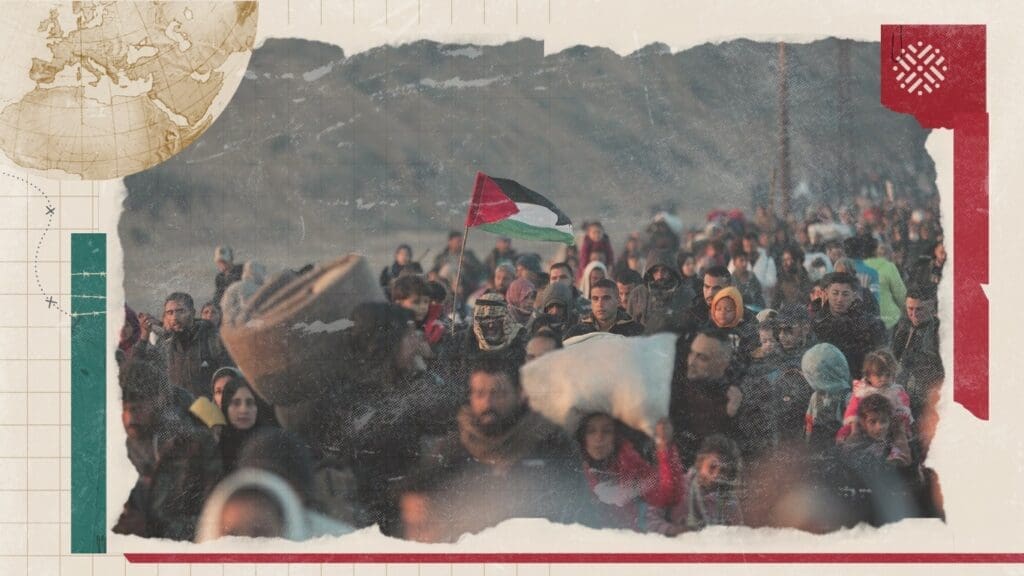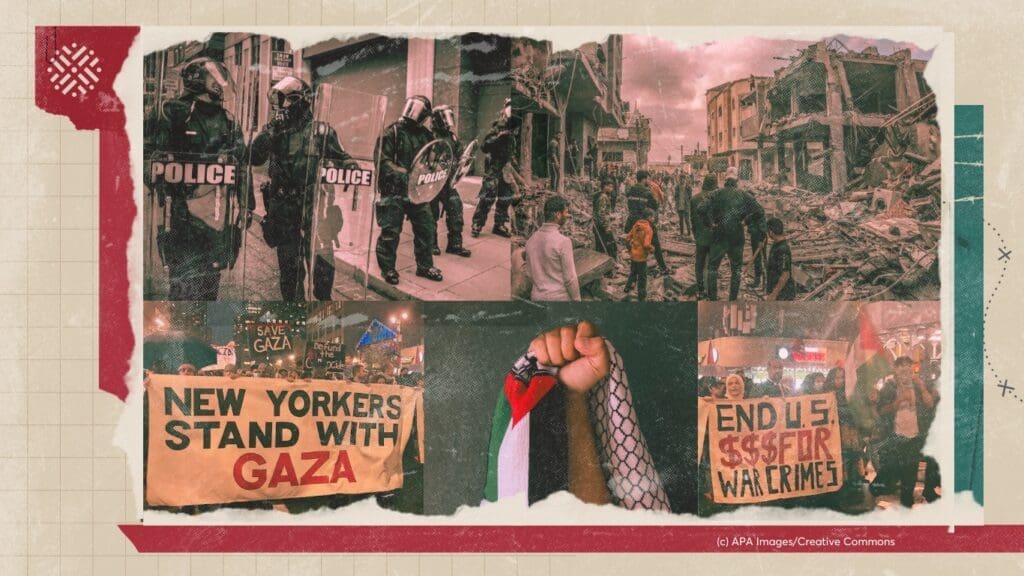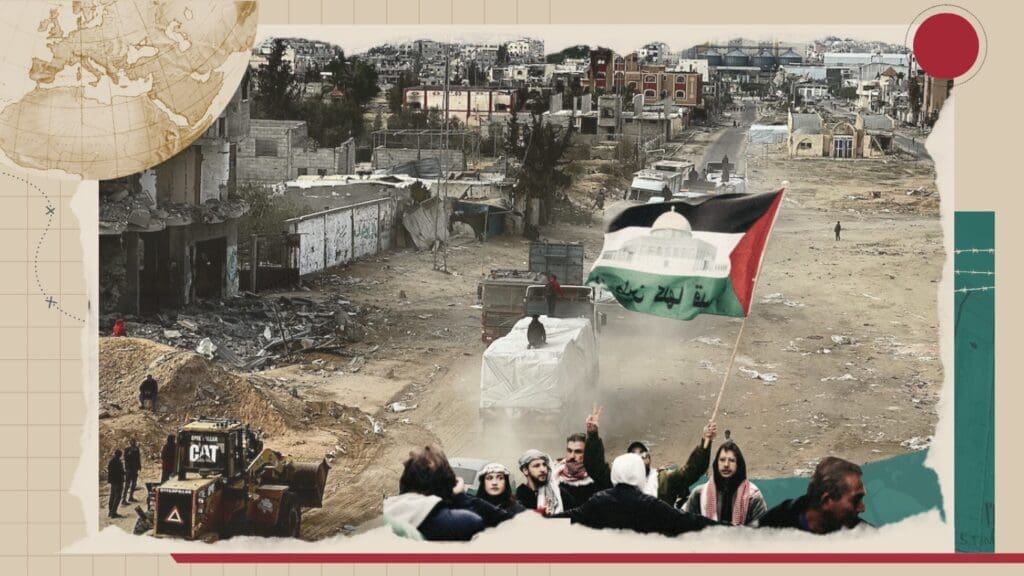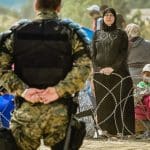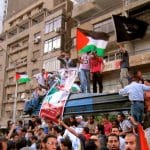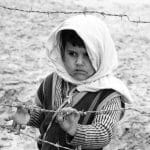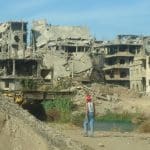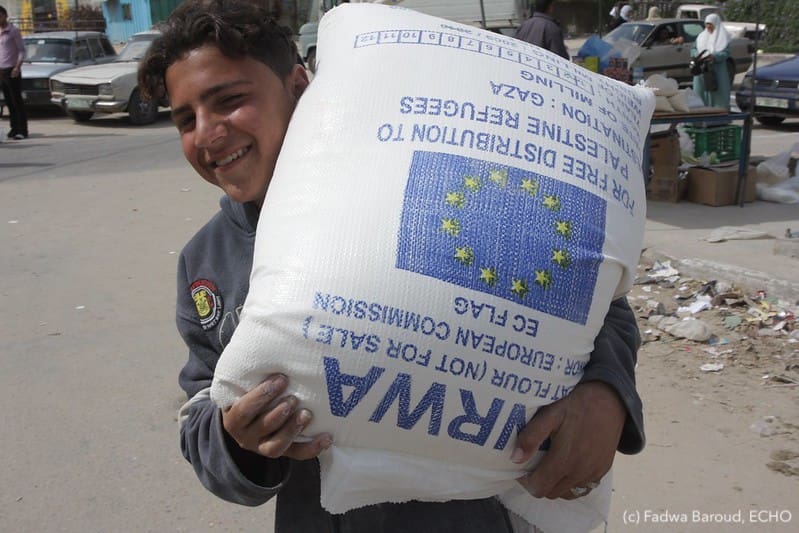
Israel recently launched a spate of attacks on UNRWA, the UN Agency serving Palestinian refugees, which could herald another attempt to shut the Agency down. At the same time, UNRWA faces serious external and internal challenges that, given the history of Western attempts to use it to resettle Palestinian refugees, could result in shifts in the Agency’s mission and mandate, as happened briefly in the post-Oslo period. Al-Shabaka Policy Advisor Randa Farah analyses the Israeli, Western, and Arab challenges to UNRWA that call for Palestinian vigilance in 2012.
Israel Takes on UNRWA (Again)
Danny Ayalon, Israel’s deputy foreign minister, recently accused the United Nations Relief and Works Agency for Palestinian Refugees in the Near East (UNRWA) of perpetuating Palestine’s conflict with Israel. Ayalon called UNRWA “morally and politically unacceptable.” He claimed that the UN applied double standards by not resettling Palestinian refugees through the UN High Commissioner for Refugees (UNHCR), thus, in his view, obstructing a peaceful resolution of the conflict between Israel and the Palestinians.
Ayalon’s attack on UNRWA is part of a pattern of recent attacks against the Agency. It closely followed a similar Israeli accusation published in Israel Hayom on November 21, in which it was announced that Israel intends to ask the UN to close down UNRWA. In addition to accusing the Agency of being an “obstacle to peace,” the article (quoting Israeli officials) claimed that UNRWA had a “distorted definition” of the term “refugee” and that no other refugees in the world were afforded refugee status for generations.
The latest attacks on UNRWA are consistent with standard Israeli propaganda, which dismiss as irrelevant the root causes of the conflict, namely the Zionist settler-colonial project and Israel’s responsibility for the ethnic cleansing of the Palestinians in1948 that produced the Palestinian refugees in the first place. They are also based on blatant lies, including, for example, ignoring the fact that millions of other refugees are in what UNHCR describes as “protracted refugee situations” that “stem from political impasses” and receive assistance. The accusations Israel levels against UNRWA are particularly absurd given its documented history of armed assaults on UNRWA’s installations, including schools, hospitals and ambulances, killing or injuring teachers, students, doctors and nurses.
External Challenges and UNRWA’s Track Record
One could dismiss the attacks as a flash in the pan. However, given the constant efforts at the US Congress to defund UNRWA, and the waxing of the Republican right-wing alongside the waning of the Obama administration’s ability and willingness to confront the Israeli Government – not to mention Canada’s withdrawal of funding to the Agency in January 2010 – the attacks could prove to be harbingers of things to come.
Beyond the Israeli attacks, UNRWA faces other external challenges resulting from fundamental political shifts in the region, most recently the uprisings in the Arab world, the Palestine Liberation Organization/Palestinian Authority (PLO/PA) diplomatic undertakings at the UN, and the continued siege of Gaza. This was the case, for example, after the signing of the Declaration of Principles in September 1993 when UNRWA began preparations for its own dissolution – a process that was reversed due to Oslo’s utter failure. Similarly, the present historical juncture is also one where UNRWA might encounter pressures, if not to dismantle its operations, to clip its wings, and diminish its status.
In this context, it is necessary to review, albeit briefly, UNRWA’s history, not only to provide a rebuttal of a tiresome Israeli claim that won’t go away, but to ensure that Palestinians remain alert to shifts that might have repercussions on Palestinian refugees whose right to return must remain the central tenet of the Palestinian national struggle.
UNRWA was founded in December 1949 in UN General Assembly Resolution (UNGAR) 302 (IV) based on the recommendation of the Economic Survey Mission (ESM is also known as the Clapp Commission). It is worth noting here is that the ESM was established following the failure of the United Nations Conciliation Commission (UNCCP) to facilitate the repatriation and compensation of Palestinian refugees, primarily due to Israel’s rejectionist position. UNRWA’s mandate as set out in Resolution 302 (IV) included the responsibilities “to carry out in collaboration with local governments the direct relief and works programmes as recommended by the Economic Survey Mission” and to “consult with the interested Near Eastern Governments concerning measures to be taken by them preparatory to the time when international assistance for relief and works projects is no longer available.” The text of the Resolution also directed UNRWA to consult with the UNCCP with particular reference to paragraph 11 of UNGAR 194 (III) 1 of 11 December 1948.2
However, the term “Works” in UNRWA’s name and mandate, practically if not forthrightly implied settling refugees in the countries of asylum, and betrayed the political stance of Western powers, most clearly the American and British. The British spokesman for the Foreign Office during a parliamentary debate in April 1951 stated that: “Her Majesty’s Government considers as a major interest of the refugees themselves that most of them, with no prejudice to their rights of compensation,3 could settle in the host Arab countries.”4 According to Tonini, early on the British adopted the dominant American vision of “development and resettlement” as the solution for Palestinian refugees. It is therefore not a coincidence that John Blandford Jr. was selected as the Chairman of UNRWA’s Advisory Commission, and later as its second Director, having acted as a consultant to President Harry Truman on the Marshall Plan for Europe. Blandford had observed that the ‘works’ projects with UNRWA’s help would form ‘the antithesis of camp life and idleness.’5 However, the integration schemes through large-scale and later the smaller ‘pilot projects’ failed, for neither the refugees nor Arab host governments were willing to compromise on the Palestinian right of return.
The fact that UNRWA was established before the UNHCR was founded and prior to the entry into force of the 1951 Refugee Convention, explains the existence of the Convention’s Article 1(D) which states that the Convention does not apply to “persons who are at present receiving from organs or agencies of the United Nations other than the United Nations High Commissioner for Refugees protection or assistance”. This is why UNRWA provides assistance exclusively to Palestinian refugees in its areas of operations and not the UNHCR.
It is critical to emphasize that the primary reason why UNRWA still exists is due to the political impasse brought about by Israel’s consistent rejection of UNGAR 194 (III) calling for the right of refugees to return and compensation. There would be no need for UNRWA if the refugees were granted their right of return. When the Agency started working in 1950, it was responding to the needs of about 750,000 Palestine refugees. Today, 5 million Palestine refugees are eligible for UNRWA services (the descendants of the original Palestine refugees are also eligible for registration.) UNRWA’s statistics include only those refugees that fall under its mandate and are registered with the Agency. The Palestinian refugee population is in fact much larger. According to Badil, at the beginning of 2007, there were approximately seven million Palestinian refugees and 450,000 internally displaced persons (IDPs), representing 70% of the entire Palestinian population worldwide (9.8 million).6 To this day, Israeli policies are producing refugees and internally displaced Palestinians.
Even if Palestinian refugees had fallen under the UNHCR mandate, they would still have a right of return under international law. Refugee law is unambiguous on this point. According to the 1951 Convention and the 1967 Protocol, the UNHCR is obliged to promote and facilitate three durable solutions: repatriation, integration, and resettlement. As a matter of fact, in the post-Cold War era, the international community privileges repatriation over other solutions. More importantly, the Convention and the Protocol, emphasize free choice, meaning that refugees should be able to choose whether they wish to return, rendering Israel’s whole argument that the Palestinian refugees can only be resettled in the Arab world legally void, morally bankrupt, and politically counterfactual.
What Israeli politicians intentionally fail to mention is that Israel passed two laws: one for Jews and another for Palestinians, to ensure that the refugees could neither return nor repossess their property. Thus, the Law of Return (1950) allows any Jew in the world to claim Israeli citizenship. In stark contrast, the Nationality Law of 1952 was drafted to prevent refugees from returning and from acquiring Israeli citizenship. The Nationality Law states that Palestinians must be able to prove that they were in the state of Israel on or after 14 July 1952. By that time two-thirds of the Palestinian population had been evicted and thus were unable to “prove that they were in the state of Israel.”
Due to the political impasse, UNRWA continues to provide assistance and relief to the refugees. A peaceful solution has been made impossible by Israel’s continued colonial expansion on Palestinian land by the relentless building of Jewish settlements in the West Bank including East Jerusalem, by shattering the economy of Gaza through an illegal blockade and repeated bombardment, by shredding the Palestinian landscape with a serpent-like segregation wall that swallows more land, by hundreds of checkpoints that restrict movement, by Jewish-only roads, by an expanding apparatus of laws and regulations that render impossible a “normal Palestinian everyday life.” This repressive apparatus increases the dependence of refugees on UNRWA’s meager aid, while concurrently creates even more refugees and internally displaced persons.
The Israeli Government has failed to make the Palestinians disappear, despite several plans and attempts that preceded the establishment of Israel in 1948 and continue to this day. It is now proposing that UNRWA should be dismantled, falsely claiming that it is the Agency that keeps their struggle alive, not the Israeli military occupation and repression. From the Zionist Israeli point of view, UNRWA failed to make the refugees fade away in the Arab world. Indeed, the plans to use UNRWA as a mechanism through which to implement a kind of Middle East Marshall Plan to contain possible unrest fomented by the uprooted refugees faltered. But so did subsequent planning and approaches, whether through “sustainable development,” or education and skills-training programs, which lured refugees to Arab markets, especially in the oil-rich Gulf States. Instead, the Agency has become a constant reminder at the international level, and to the Palestinians, that an original sin and an injustice had been committed in 1948, which has to be rectified. It draws attention to de facto Palestinian statelessness and their existence as a nation with a right of self-determination yet to be fulfilled.
Internal UNRWA Challenges Call for Vigilance
Does the Agency act as a catalyst to absorb refugees in the Arab world and to contain their political struggle, or does it keep their cause alive and visible on the international scene? This has been a Palestinian question ever since the Agency was established, and will always present itself as long as the conflict continues, and as long as there are several actors, with differing interests and agendas, many of them competing within the Agency.
In a previous Al-Shabaka policy brief I noted that UNRWA is not a fixed and homogeneous institution; rather, it is an evolving body and a space fraught with contradictions, due to the fact that it is embroiled in local, regional, and international politics. The agendas and interests of various states and institutions that impinge or directly influence the Agency may collude or collide, including the interests of refugees, refugee-employees of the Agency, the PLO/PA or Hamas, donor states, Arab host-states, and Israel. Each of these actors tries to pull it in a certain direction and inscribe it with particular meanings and functions. Thus, for example, western powers (many of them UNRWA’s primary donors) have generally adopted Israel’s position on the refugee issue. By contrast, Palestinian refugees, including those who fall under UNRWA’s mandate, regard their political and legal rights as non-negotiable. Thus, within UNRWA the interests of refugees and those of western powers are inherently contradictory.
Consequently, UNRWA has been riddled with ambiguities resulting from its multi-faceted connections, and conflicting interests. In addition, today, the Palestinian leadership does not have the unity and therefore clout it had in earlier decades, and is distracted by its diplomatic activities and the schism between Hamas and Fatah; more relevantly, since Oslo it has relegated refugees to the margins of its political agenda. This abates the influence Palestinians have on the Agency, granting other players, including Israel, a larger margin to maneuver and attempt to inhibit the Agency’s ability to operate to a bare minimum, for example, by pressuring western governments to defund; or by stifling refugee voices within the Agency that promote Palestinian rights by waving the tedious old refrain “terrorism-connection.” This latter tactic is meant to keep UNRWA under the constant gaze and scrutiny.
We must also consider UNRWA’s internal make-up. The Palestinian staff of UNRWA constitutes over 95% of some 30,000 employees, yet the executive branch and the higher echelons in the bureaucracy are international recruits, mostly Americans and Europeans, who monopolize the decision-making power and policy matters. Generally speaking, the relationship between the international staff and the Palestinian employees exposes stark inequalities, and is affected by the larger political shifts and regional fluctuations.
Consequently, while it is important to be aware of Israeli diplomatic raids against UNRWA, it is equally critical to note internal shifts, for the external and internal factors are interrelated, including: internal changes in policies, in the administrative and financial structures, and in programs and operations. For example, as previous research revealed, the Agency has become extremely unforgiving of any visible signs of refugee histories of expulsion, or that they are politicized in any way. In earlier years, in the heyday of the PLO in UNRWA schools or camp centers one could find pre-1948 maps hung on the walls; today, such an act (it is a right not a privilege for refugees to learn about their past) could raise a stir within UNRWA and perhaps disciplinary measures against local staff. In other words, external pressures on UNRWA are being made to ensure there are no “terrorist” infiltrators, and in this definition, Palestinian refugees and especially employees must act as if they have no history or politics, and instead pose as humanitarian cases whose identity is premised only on their status as “beneficiaries” or passive recipients of aid.
UNRWA’s internal changes along with Israeli calls to withdraw funds to the Agency or even dismantle it should raise questions. In turn, Palestinians need to keep an eye on changes to programs and policies within UNRWA to ensure it remains true to its original mission to assist Palestinian refugees, and not evolve into a self-serving bureaucracy that provides an opportunity for international staff to accumulate large salaries at the expense of the refugees, or even worse to become a watchdog looking for “terrorists” among the refugees. The Agency has coexisted with Palestinian refugees for over six decades and acts as a reservoir of memory, holding thousands of documents attesting to the Palestinian historical tragedy. Refugees have come to regard it as the symbol of their rights; it is also a source of livelihood for many of the most impoverished among them. Palestinians should safeguard this legacy to ensure that the Agency, its identity and mission, will not be hijacked by those who caused their displacement.
Randa Farah is an Associate Professor at the University of Western Ontario, Anthropology Department. Dr. Farah has written on Palestinian popular memory and reconstructions of identity based on her fieldwork in a refugee camp in Jordan. She was a Research Associate at the Centre d’Etudes et de Recherches sur le Moyen-Orient Contemporain (CERMOC), in Jordan, where she conducted research on Palestinian refugees and the United Nations Relief and Works Agency (UNRWA). She held different positions as Visiting Fellow and an Associate Researcher at the Refugee Studies Center (RSC) at the University of Oxford.
- In paragraph 11 the widely-quoted UNGAR 194 (III): Resolves that the refugees wishing to return to their homes and live at peace with their neighbours should be permitted to do so at the earliest practicable date, and that compensation should be paid for the property of those choosing not to return and for loss of or damage to property which, under principles of international law or in equity, should be made good by the Governments or authorities responsible. ↩
- UNGA A/RES/302 (IV) 8 December 1949 at: http://unispal.un.org/unispal.nsf/a06f2943c226015c85256c40005d359c/af5f909791de7fb0852560e500687282?OpenDocument ↩
- Note the absence of any mention of repatriation as also being a right. ↩
- Tonini, Alberto “The Donor Countries and UNRWA’s Relief and Development Policies, 1950-1967” Paper presented at a workshop organized by Centre d’Etudes et de Recherches sur le Moyen-Orient Contemporain (CERMOC), in Amman, Jordan (9-11 October, 1998). ↩
- Schiff, Benjamin, 1995, Refugees Unto the Third Generation: UN Aid to Palestinians., New York: Syracuse University Press, p. 29. ↩
- Since this policy brief was written, later data was issued by the Palestinian Central Bureau of Statistics (see here). PCBS data give the projected number of Palestinians in the world as 11.22 million, of whom 4.23 million are in the Palestinian Territory, 1.37 million in Israel, 4.99 million in Arab countries and around 636 thousand in other countries. ↩



